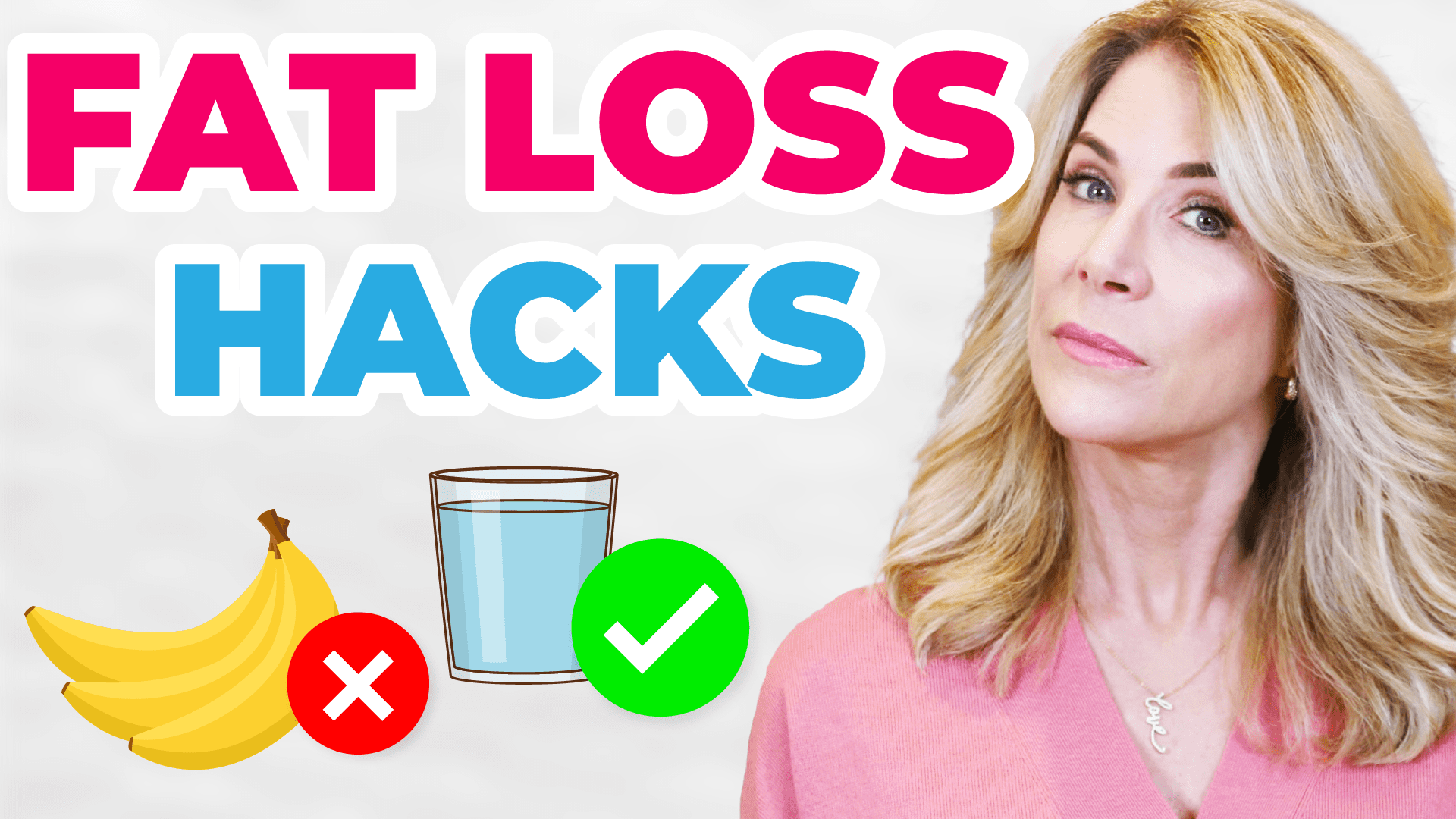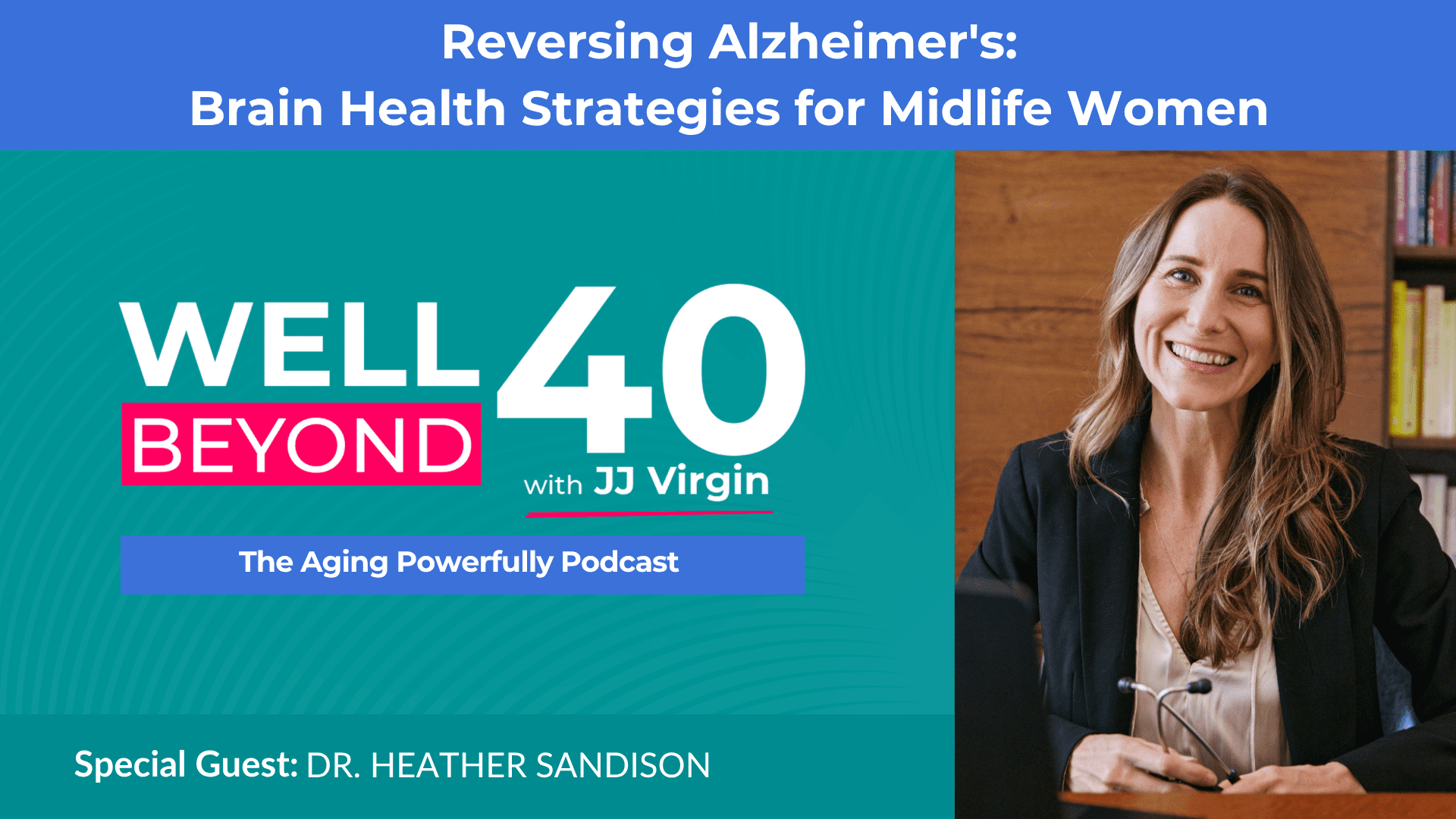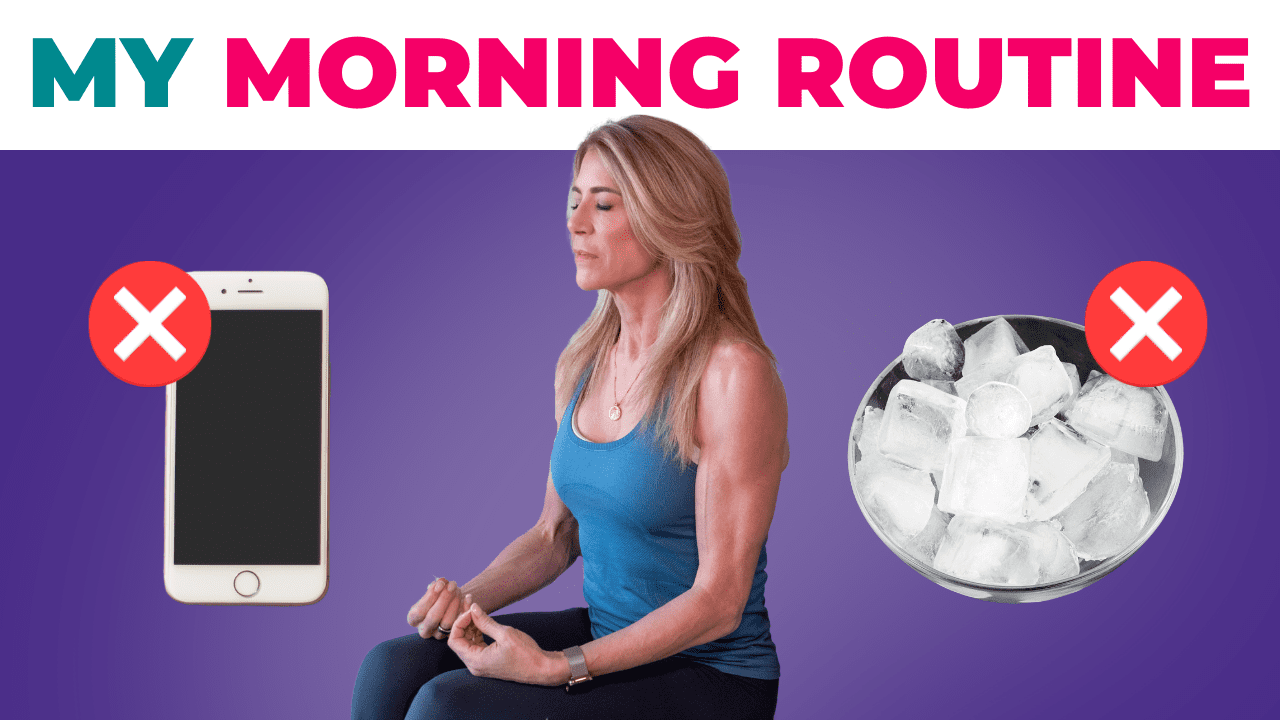Five Essential Habits for Enhanced Fat Burning
In this episode, I share five key habits that are not only easy to implement, but also cost-effective, designed to enhance fat loss and maintain muscle mass as you age. I start with the transformative power of protein, explaining why consuming it first at every meal can lead to better food choices and enhanced metabolic efficiency. It’s not just about nutrition; it’s about leveraging protein for hormone balance, increased satiety, and effective detoxification.
I also cover the benefits of incorporating walks after evening meals and the critical role of staying hydrated. Understanding the physiological impacts of these actions can significantly improve your health outcomes.
Lastly, I discuss the often-neglected effects of alcohol on fat metabolism and the essential practice of consistent meal tracking for sustainable weight management. I emphasize how tracking your meals can transform your approach to dieting and support long-term health goals. Tune in for practical tips and strategies to revamp your health routines and achieve better body composition after 40. Join me for more insights and check out our website for resources and challenges to kickstart your journey!
Timestamps
00:01:20- The game-changing effects of prioritizing protein intake on food choices, calorie expenditure, and weight management
00:03:37 – The benefits of walking after your meals
00:04:18 – Dive into the crucial role of hydration in fat loss, detoxification, and revving up your metabolism, and why even mild dehydration has consequences
00:07:04- The double whammy of alcohol consumption: how it hinders weight loss efforts and throws your hormones for a loop
00:08:45 – Exploring the intricate relationship between poor sleep, alcohol intake, and weight gain
00:09:25- The power of tracking for your health and fat-loss goals
Resources Mentioned in this episode
7-Day Eat Protein First Challenge
Use my Eat Protein First Calculator
Reignite Wellness™ Extra Fiber
Download my FREE Best Rest Sleep Cheat Sheet
JJ: [00:00:00] [00:00:03] I’m JJ Virgin, [00:00:06] Ph. D. dropout, sorry mom, turned four [00:00:09] time New York Times best selling author. Yes, I’m a [00:00:12] certified nutrition specialist, fitness hall of famer, and I [00:00:15] speak at health conferences and trainings around the globe. But [00:00:18] I’m driven by my insatiable curiosity and love of [00:00:21] science to keep asking questions to myself.
Digging for [00:00:24] answers and sharing the information that I uncover with as many [00:00:27] people as I can. And that’s why I created the [00:00:30] Well Beyond 40 podcast to synthesize [00:00:33] and simplify the science of health into actionable [00:00:36] strategies to help you thrive. In each episode, [00:00:39] We’ll talk about what’s working in the world of wellness from [00:00:42] personalized nutrition and healing your metabolism to [00:00:45] healthy aging and prescriptive fitness.
Join me on [00:00:48] the journey to better health so you can love how you look and [00:00:51] feel right now and have the energy to play full [00:00:54] out.[00:00:57] [00:01:00]
[00:01:03] What if there were some small, simple shifts you could do [00:01:06] that could make a big difference in your ability to [00:01:09] burn fat and hold on to muscle? Well, I’ve got [00:01:12] five science based hacks that are easy to [00:01:15] implement and aren’t going to cost a bunch of money either. [00:01:18] Now, the first one is my mantra, and [00:01:21] that is eat healthy.
Eat protein first. Why do I say [00:01:24] eat protein first? Well, I know that if you eat it first, you got it [00:01:27] in and it’s so important to do that for a variety of [00:01:30] reasons. Number one, we know that people who eat protein [00:01:33] first tend to make better food choices overall. [00:01:36] Number two, protein has the highest [00:01:39] thermic effect of food as compared to the other [00:01:42] macronutrients, fat and carbohydrates.
You expend about [00:01:45] 20 to 30 percent of the calories in protein in just [00:01:48] the digestion and assimilation. Contrast that to [00:01:51] carbs. 5 to 10 percent or fat [00:01:54] 0 to 3%. So [00:01:57] digestion takes up about 10 percent of your overall calories a day. [00:02:00] So while it’s not a lot, it makes a difference. [00:02:03] It also makes a difference in both satiety and [00:02:06] satisfaction.
Those amino acids in protein that [00:02:09] help make hormones and neurotransmitters can also help you feel [00:02:12] more satisfied. And we know from the protein leverage [00:02:15] hypothesis that you’re not getting enough protein. You tend to [00:02:18] overeat until you get there. So [00:02:21] Eating enough from the start helps solve that, plus [00:02:24] protein is more satiating, it slows down stomach [00:02:27] emptying so you feel fuller longer.
It can also help [00:02:30] with blood sugar control, and [00:02:33] also it helps with detoxification. Now, we don’t talk [00:02:36] about this much, but one of the things that happens as you’re losing [00:02:39] fat is you’re freeing up toxins. [00:02:42] Toxins are stored in your fat, and you want to make sure [00:02:45] that as you’re freeing them up, you’re also getting them out.
And [00:02:48] you need the amino acids from protein to grab [00:02:51] all of that fat. On to those toxins so that you can [00:02:54] then prep them so they can be excreted. Now, [00:02:57] if all you did was just start to eat [00:03:00] protein first, it’s going to help you eat less overall, which of [00:03:03] course will help you lose weight because you need to [00:03:06] get into a little caloric restriction.
In order [00:03:09] to lose weight and my seven day challenge [00:03:12] shows you how easy it is to do this [00:03:15] one simple thing. And again, I always like to focus with those big [00:03:18] rocks, right? So if you go to jjvirgin. com forward slash [00:03:21] seven day, that will give you a protein [00:03:24] calculator, figure out how much protein you need, and then [00:03:27] a very simple plan you can follow to do a challenge for [00:03:30] seven days.
So you can prove it to yourself. All [00:03:33] right, the next one, walking after your evening [00:03:36] meal. And I especially emphasize after your evening [00:03:39] meal. Now, I want you to walk more all throughout the day. [00:03:42] 8, 000 steps is kind of that minimum baseline. [00:03:45] Goal is really 12, 000 or more. But I want you to put [00:03:48] some of that movement after your evening meal [00:03:51] because when you do that, you’re going to have a couple great things that [00:03:54] happen.
Number one, it’s going to improve your digestion. [00:03:57] Number two, it’s going to lower your blood sugar response to the meal. [00:04:00] And number three, it’s going to help you sleep better. [00:04:03] So that’s like the trifecta. So let’s try to get [00:04:06] in even a couple thousand steps after your [00:04:09] evening meal. Even if it means if the weather’s bad, you’re [00:04:12] walking around the house a bunch, whatever you need to do.
Next up [00:04:15] is getting hydrated. And I want you to drink fluids [00:04:18] in between your meals and especially [00:04:21] before your meals. In fact, one of the things you can do if you’re a little hungry [00:04:24] is have a big glass of water, especially a little [00:04:27] lemon juice in it that can help lower the blood sugar response to the meal [00:04:30] and put a little fiber in that too.
But what I want you to [00:04:33] think of is drinking half your weight in [00:04:36] ounces per day, and then adding [00:04:39] in a half to one ounce per minute of exercise. [00:04:42] Now, This is super duper important [00:04:45] for helping you lose fat and helping you [00:04:48] detoxify too. So the process of burning fat is called [00:04:51] lipolysis. And the first step of this process is [00:04:54] hydrolysis, which occurs when water molecules [00:04:57] interact with triglycerides.
fats to create [00:05:00] glycerol and fatty acids. There was a mini review in [00:05:03] 2016 that found the increased water intake led to [00:05:06] increased lipolysis and a loss of fat [00:05:09] in animal studies. We also know that [00:05:12] water can lower hunger. There was a [00:05:15] 2014 study where 50 overweight women [00:05:18] drank 500 milliliters of water 30 [00:05:21] minutes before breakfast, lunch, and dinner.
And In addition to [00:05:24] their regular water consumption, and this went on for eight consecutive [00:05:27] weeks, here’s what happened. The participants [00:05:30] experienced a reduction in body weight, body fat, [00:05:33] and body mass index, and they also reported [00:05:36] appetite suppression. All they did was add [00:05:39] water. But wait, there’s more.
Water also boosts [00:05:42] metabolism. There’s research indicating that drinking water might [00:05:45] stimulate the body’s metabolism and energy expenditure, [00:05:48] contributing to weight management. This is known as [00:05:51] water induced thermogenesis. And it’s [00:05:54] been observed with increases in metabolic rate following the intake of [00:05:57] 500 milliliters water by as much as [00:06:00] 30 percent for 20 to 30 minutes.
There [00:06:03] was a study with 14 healthy normal weight people. There were [00:06:06] seven men, seven women, and researchers wanted to see what [00:06:09] would happen when the participants drank a glass of water. Water they did. It [00:06:12] was about a 70 ounce glance of water. And what they found was that [00:06:15] when you drink that much water, your body burns calories [00:06:18] faster.
And again, it was about 30% increase in [00:06:21] metabolism for 20 to 30 minutes. Now, on the [00:06:24] flip side, if you are dehydrated, even mildly [00:06:27] dehydrated, it can actually cause fat gain. I [00:06:30] learned this from Dr. Rick Johnson. Where he showed [00:06:33] me that mild dehydration can [00:06:36] actually cause your body to take fructose in the [00:06:39] liver, glucose in the liver rather, turn it into [00:06:42] fructose and store it as fat in an [00:06:45] effort to conserve fluid, conserve [00:06:48] water, so if you need it for later, like a camel, you [00:06:51] have something to pull from.
Because remember, if you’re [00:06:54] storing fat, when you burn fat, you’re freeing up water. [00:06:57] So we want to make sure that we are staying hydrated because [00:07:00] Even mild dehydration also raises stress [00:07:03] hormones. Next step. Sorry about this, but you got to [00:07:06] limit the alcohol because alcohol also [00:07:09] impairs fat metabolizing metabolism.
And here’s [00:07:12] why. When you drink alcohol, this is the [00:07:15] first thing that your body metabolizes. Your liver [00:07:18] is going to metabolize alcohol before everything else. So [00:07:21] that means that when you consume it, Your body now is [00:07:24] prioritized processing the alcohol over fat, [00:07:27] over carbs, over protein. And while your body’s [00:07:30] processing alcohol, it’s not going to be [00:07:33] efficiently burning fat for energy.
So now you’re [00:07:36] basically blocking your body’s ability to [00:07:39] utilize stored fat for fuel. Plus, we all know this, [00:07:42] alcohol can stimulate appetite and lead to [00:07:45] overeating. And another pearl from Dr. Rick Johnson, he [00:07:48] shows how Alcohol will lower ATP [00:07:51] production. That’s our energy production or lower [00:07:54] ATP, which lowers our energy production, which then of [00:07:57] course also drives hunger.
We know that it lowers [00:08:00] inhibitions. We know it makes you more likely to indulge in [00:08:03] high calorie, unhealthy foods. And. [00:08:06] What’s that all mean? Well, now you’re eating more [00:08:09] and you’ve got impaired fat metabolism. That’s the [00:08:12] double whammy for weight gain. Plus, [00:08:15] alcohol can also affect hormone levels related [00:08:18] to appetite regulation.
It can increase [00:08:21] ghrelin levels, and that’s a hormone that stimulates hunger. [00:08:24] And we also, it also can decrease leptin levels. [00:08:27] That’s one that signals fullness. [00:08:30] This hormonal imbalance can lead to weight gain. more [00:08:33] food intake, which then of course would lead to weight [00:08:36] gain. Now when I think about alcohol, I also [00:08:39] think about sleep because quite often people have alcohol to help them [00:08:42] sleep.
And while alcohol can help you feel drowsy and [00:08:45] may help you fall asleep initially, it completely [00:08:48] messes up the quality of your sleep. It can lead to more [00:08:51] frequent awakenings all throughout the night. It also [00:08:54] reduces the time spent in restorative [00:08:57] REM sleep. Now poor sleep contributes to [00:09:00] weight gain, makes you more insulin.
[00:09:03] resistant and interferes with your body’s ability to [00:09:06] burn fat effectively. So, [00:09:09] gotta make sure that you are sleeping well and [00:09:12] it’s another reason to skip the alcohol. [00:09:15] So, final one, [00:09:18] and this is a biggie, and it is tracking. [00:09:21] I just started working with a new [00:09:24] client and the first thing that I had this client [00:09:27] do before anything else, I said, all I want you to do is track.
I don’t want you [00:09:30] to do anything. No instructions. Just start tracking. [00:09:33] I know that just tracking changes the game. [00:09:36] There was a fascinating study in the diabetes [00:09:39] prevention program that discovered this over a 12 month period. [00:09:42] Participants were split into 3 groups based on how often they [00:09:45] logged their food.
There were the rare trackers, there were the [00:09:48] inconsistent trackers, and then there were the consistent trackers. Now, [00:09:51] here’s the deal. Only those who were [00:09:54] consistently tracking their meals and doing so [00:09:57] more so on like two thirds of the day, which I’d say is [00:10:00] Consisting of me is every day, but those are the only people that [00:10:03] saw significant weight loss.
They averaged 10 pounds consistently [00:10:06] over the year versus the rare and the [00:10:09] inconsistent trackers had this roller coaster experience. They lost less [00:10:12] weight during the holidays. They lost a little more in the [00:10:15] summer. But the big message here is [00:10:18] for consistent and long term weight loss, [00:10:21] regular food tracking isn’t just helpful, it’s crucial.
And [00:10:24] it’s not just about tracking, you know, tracking [00:10:27] on the good days. And that’s the really important thing. So that’s why [00:10:30] I start with, and I’m starting right now with this client, is just [00:10:33] tracking what you do. Just [00:10:36] the first thing I had to do is track what you’re eating. [00:10:39] Just be curious and let’s see how many calories you need during [00:10:42] the day and where they’re coming from.
Then the next thing that I’ll have [00:10:45] him do is, how much protein are you eating? And let’s [00:10:48] get you into that ideal range overall [00:10:51] and each meal. And then I start looking at [00:10:54] non starchy vegetables. And so again, most of it is [00:10:57] adding before I take away, because the reality is, [00:11:00] if you’re adding in the good stuff, You push out the bad [00:11:03] stuff.
All right, now you know that you need to track, you [00:11:06] need to eat your protein first, you got to stay well [00:11:09] hydrated, and of course pump out [00:11:12] the alcohol and get some sleep. [00:11:15] Now you got to learn the best foods for fat loss. So watch [00:11:18] this next video to learn the top foods to include in your [00:11:21] daily diet to support your efforts and And get to your [00:11:24] body comp goal.[00:11:27]
Be sure to join me next time [00:11:30] for more tools, tips, and techniques you can incorporate into [00:11:33] everyday life to ensure you look and feel great. And more [00:11:36] importantly, that you’re built to last. And check [00:11:39] me out on Instagram, Facebook, YouTube, and my [00:11:42] website, jjvirgin. com and make sure to follow [00:11:45] my podcast. So you don’t miss a single episode at [00:11:48] subscribetojj.
com. See you next [00:11:51] time.[00:11:54] [00:11:57] [00:12:00]
Hey, JJ here. And just a [00:12:03] reminder that the Well Beyond 40 podcast offers health, wellness, [00:12:06] fitness, and nutritional information that’s designed for [00:12:09] educational and entertainment purposes only. You should not [00:12:12] rely on this information as a substitute for, nor does [00:12:15] it replace professional medical advice, diagnosis, or [00:12:18] treatment.
If you have any concerns or questions about your health, [00:12:21] you should always consult with a physician or other healthcare [00:12:24] professional. Make sure that you do not disregard, [00:12:27] avoid, or delay obtaining medical or health related advice from [00:12:30] your healthcare professional because of something you may have heard on this [00:12:33] show or read in our show notes.
The use of any [00:12:36] information provided on this show is solely at your own [00:12:39] risk.
Hide Transcript

 Subscribe to our show
Subscribe to our show 




